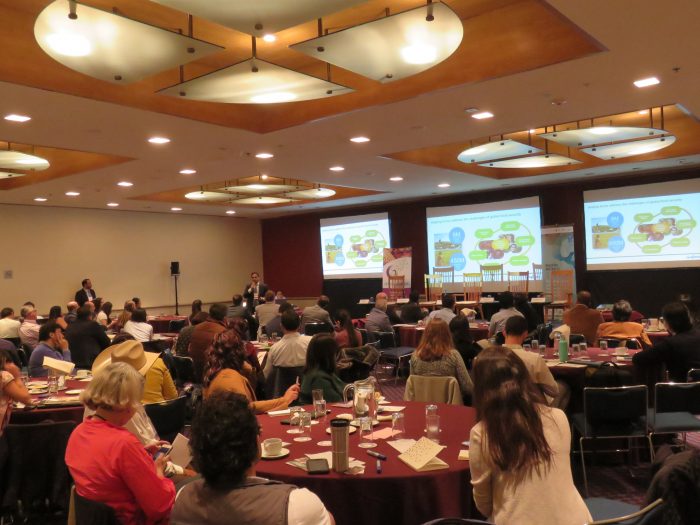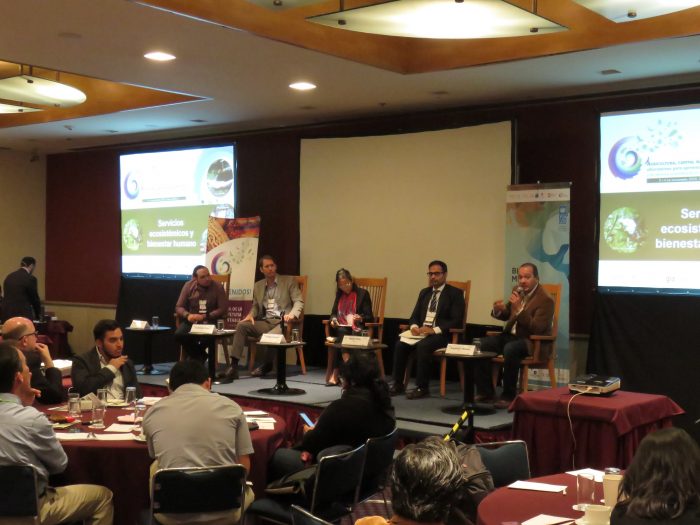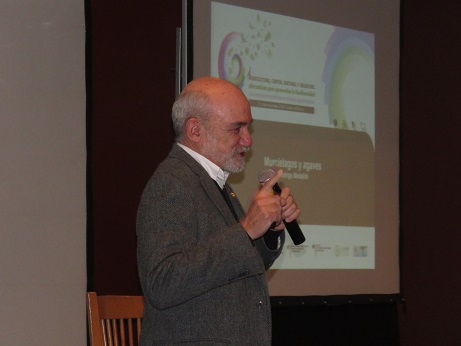National and international agri-food companies that seek to include natural capital in their business plans meet. This presents an opportunity to ensure the sustainability of the sector in the face of pressures related to water and soil impacts and climate change, and about how to maintain leadership in a changing market.
The agri-food sector has great socioeconomic and cultural importance for the country and is highly dependent on our ecosystem’s services, its natural capital. However, in 2018 our agri-food system finds itself under tremendous pressure. Consumers are asking for a change in how we produce our food and for more transparency in the value chain. The agri-food sector, with agricultural businesses as the main suppliers, is well placed to confront this challenge and help in the move towards a future eco-agri-food system.
On November 6, the event Agriculture, Natural Capital and Business: Alternatives to Take Advantage of Biodiversity and Ecosystem Services in the Agri-Food Sector was held in Mexico City, as part of the Week of Sustainable Agriculture Mexico-Germany. Representatives from the private, public and civil society sectors met to present and discuss options for taking advantage of natural capital. The space served as a platform for exchanging experiences and lessons learned between companies. The event was organized with the support of the Deutsche Gesellschaft für Internationale Zusammenarbeit (GIZ) GmbH, the Integration of Biodiversity in the Agricultural Sector Project, the Private Business Action for Biodiversity Global Project of the International Climate Initiative (IKI), the Biodiversity Finance Initiative (BIOFIN) of the United Nations Development Programme (UNDP), the Mexican Alliance for Biodiversity and Business (AMEBIN) and the German Embassy in Mexico.

Companies and initiatives from Germany, Brazil, Switzerland and Mexico participated in the event, which offered private agri-food sector companies guidance for taking advantage of natural capital so that they can remain as leaders in a changing market.

Important contributions were made by Rodrigo Medellín, researcher at the Institute of Ecology of the National Autonomous University of Mexico (UNAM) about the tequila initiative’s “Bat-Friendly” seal, and by Alejandro von Bertrab on the GIZ ValuES Project. Both initiatives are useful for recognizing and demonstrating the value of renewable and non-renewable resources and their benefits for human beings, as well as the best way to integrate them into public policy planning and use them as positive market forces.
Participating in the panel discussion Integrating Biodiversity in Practice were Green Markets, an international initiative of GIZ Brazil, as well as the companies Syngenta, Merca Rancho and Driscoll’s. They discussed the challenges and opportunities for integrating natural capital into businesses and offered concrete recommendations for companies seeking to incorporate this approach into their business plan

In the panel Mexican Alliance for Biodiversity and Business as Promoter of Biodiversity in Businesses, AMEBIN members from the Walmart Foundation, the Rainforest Alliance, Conservation International and Neek’ Capital discussed financing options and incentives for businesses seeking to integrate biodiversity and natural capital.
Prior to the event, GIZ also offered a training on tools for identifying the links between nature and businesses, as well as for mitigating operational, regulatory and reputational risks, and taking advantage of opportunities to integrate biodiversity and ecosystem services into the agri-food sector.
